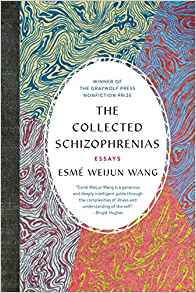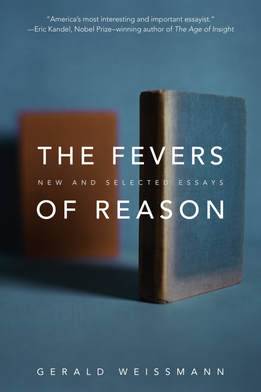Temptation, angst, and lunacy all rear their heads as Sheena Patel explores the obsession that comes with unrequited love in her debut novel I’m a Fan. The fan in question is an unnamed narrator who has wrapped herself up in an affair with an aloof, womanizing older man. Patel, an established poet, chronicles the bad decisions of the unnamed narrator through blunt but enticing prose. Patel puts stock into the power of fan presence, linking political influence to the number of devoted followers one has. The narrator, a woman of color with little recognition, pales in comparison to the white female influencers with whom she must compete. She speaks to privilege packaged as #goals, to algorithms and whiteness discounting indigenous and black and brown creators, and to the universal immature desire to be liked.
0 Comments
As a fellow member of the Dead Parent Club™, Stephanie Austin’s Something I Might Say caught my attention because it made me want to compare notes on grief. In this brief collection of nonfiction essays describing an even more brief portion of Austin’s life, she explores the many layers of grief that overwhelmed her in just a few months' time due to back to back losses in her family. If you have experienced significant loss in your life and yearn for someone who can genuinely empathize, not just sympathize, then this collection of bite sized essays is for you.
“We may know the sacred; we may not impart it.”
George Choundas tosses this penetrating sentence seventy-five pages into his collection of essays, Until All You See is Sky. It’s one of the many turns of phrase that will make the reader pause and reflect. This in itself is not so shocking—good writing should, at the bare minimum, have an impact on the reader. What sets Choundas apart from the others, in my opinion, is context. Where this shrewd pronouncement is more befitting a spiritual revelation or a hard-learned life lesson, Choundas has gifted this deep and affecting statement to… baked goods.
After seeking help from numerous doctors and specialists, Esme Weijun Wang couldn’t shake the feeling that something was being missed.
Finally, there was a breakthrough during her college years when she was first diagnosed as bipolar the summer before she left for New Haven. And then when her medical records were sent to Stanford she explains, “In the referral authorization itself, I was listed as having two diagnoses: schizoaffective disorder, bipolar type and idiopathic peripheral neuropathy. There was no mention of fibromyalgia, complex PTSD, dysautonomia/POTS, chronic Lyme disease, or any of the other diagnoses I’d received over the years” (185). Esme Weijun Wang’s 2019 essay collection The Collected Schizophrenias is an engaging journey that deals with a serious topic. The book does a thorough job of educating the reader in this area of health that is commonly misunderstood. The relationship between the author and the text is beautifully captured by including both clinical information and her own personal struggles and triumphs.
As I approached The Fevers of Reason, I did so with a foot in each river of influence—or rather, a leg in one and a toe in the other. Weissmann’s essays discuss the intersection of various issues within medicine and popular culture. As a student of literature, I have often written extensive essays and participated in lengthy discussions of multiple works, like Arrowsmith and Sherlock Holmes,that Weissmann includes. Until recently, my knowledge of science and medicine has been rather superficial—me as a nervous patient in the waiting room. As my study of literature, guided by Elaine Scarry and Rita Charon, has begun to dip into the interaction between literature and medicine I’ve become more confident about the relationship between the two. Wearing my budding knowledge of the relatively young field like swimmies, I jumped right in to Weissmann’s collection and found a rich layering of past, present, science, and literature to present diverse takes on the issue at hand.
|
Archives
July 2024
Categories
All
|
|
Glassworks is a publication of Rowan University's Master of Arts in Writing 260 Victoria Street • Glassboro, New Jersey 08028 [email protected] |
All Content on this Site (c) 2024 Glassworks
|






 RSS Feed
RSS Feed
